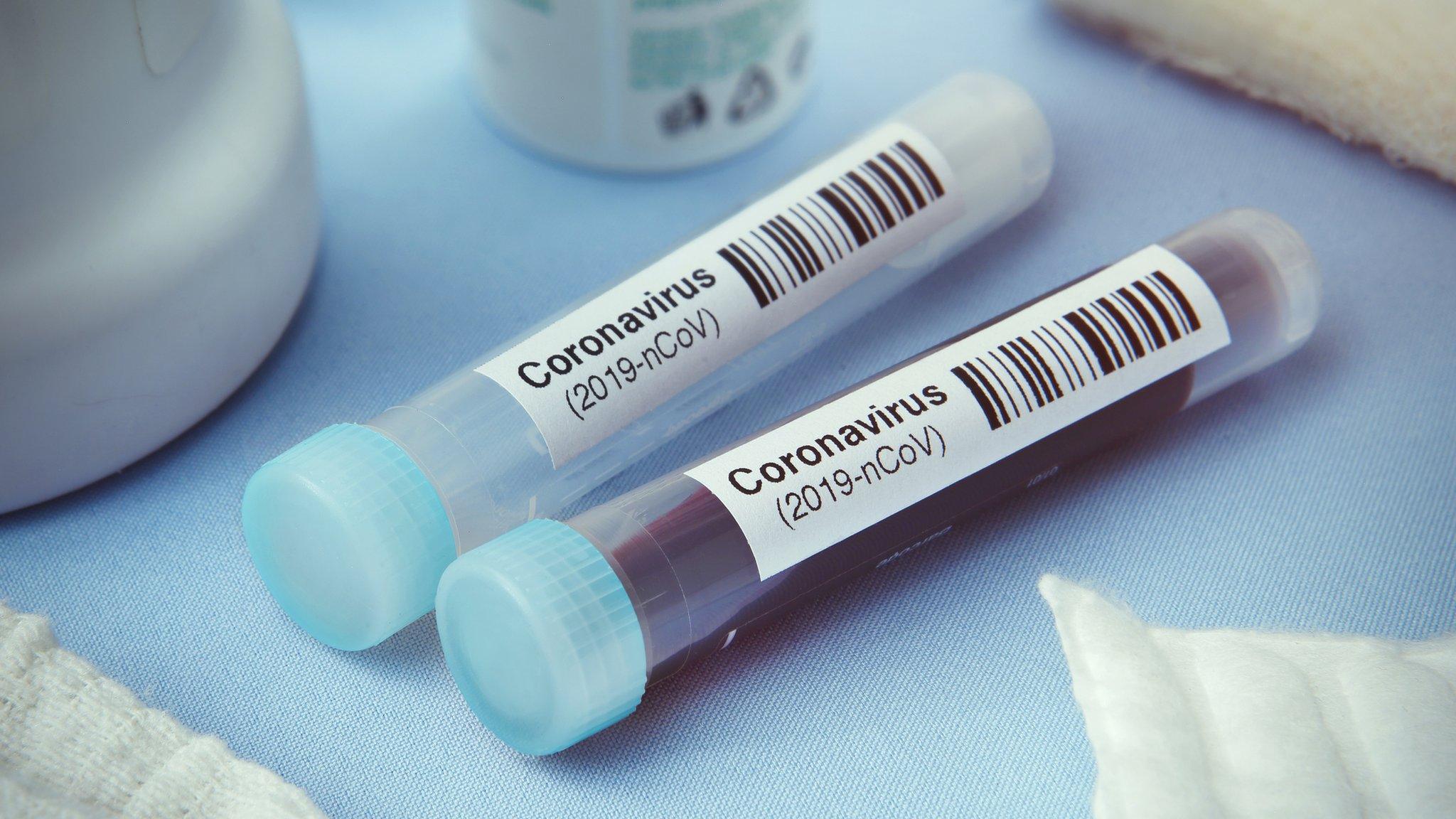Coronavirus: NHS beds plan as 153 people test positive for Covid-19
- Published
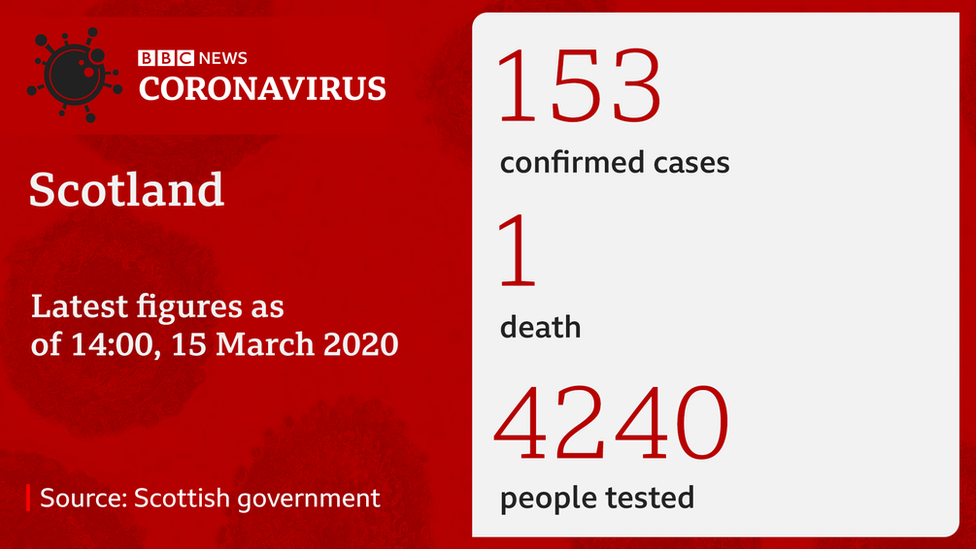
The NHS in Scotland is seeking to double the number of intensive care beds as cases of Covid-19 continue to rise.
Daily figures released by the Scottish government show 153 people have tested positive, a rise of 32 since Saturday.
The latest UK picture shows 1,372 confirmed coronavirus cases and a total of 35 patients have died.
Health Secretary Jeane Freeman told the BBC she hoped to take the number of ITU beds available to 380.
She said she was also working with the UK government to see manufacture of ventilators and other essential equipment increased.
And she warned that stricter virus control measures could be implemented "within days".
Jeane Freeman says unattributed briefings are not the best way to disseminate information
The minister appeared on the BBC's Politics Scotland programme the day after Scotland saw its largest daily rise in Covid-19 cases and two days after the first fatality.
Ms Freeman said: "We are working to double the number of acute beds. That will take us to about 380.
"We are looking at what we need to do to increase capacity in our existing hospitals. That will include slowing down and stopping elective work."
She said that she was also in the process of preparing additional bed capacity but said that was unlikely to involve temporary buildings. The public would be told about additional facilities in due course.

She added that she was working with the UK government to maximise the manufacturing capacity for ventilators.
She said: "My understanding is we have one company in the UK and we need to get them to scale up manufacturing to ensure we have enough ventilators and equipment."
The minister said she was due to take part in a Cobra meeting with the UK government on Monday and warned that significant decisions on further measures to curb the spread of the disease would be made in the coming days.
Details would be made public when the strategy was agreed but these would most likely include asking over 70s to reduce their social contact as one of the groups most at risk from the virus.
But she insisted this would not entail them being cut off from society.
Closing schools and introducing the armed forces to help fill gaps in public services would be introduced "at the point when it will have the most impact," she added
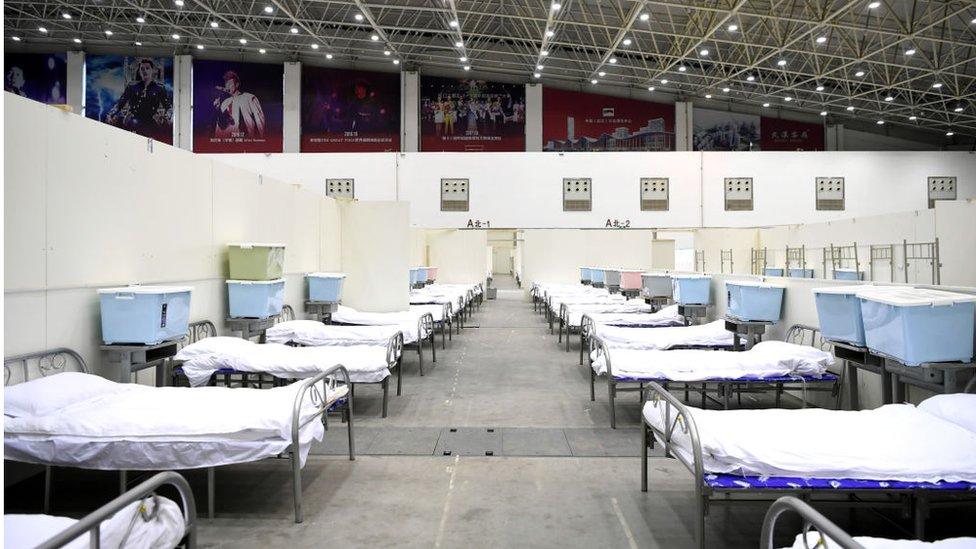
A temporary hospital facility in Wuhan, China: The Scottish government is looking at additional capacity but said temporary buildings were not likely to be an option
'Not how we would do it'
Ms Freeman said that governments should be explaining these measures very clearly to the public through the media and should be doing it at the right time.
She criticised the UK government's approach to putting out public information, saying it was not helpful for newspapers to publish potential measures before the authorities had revealed them.
She said: "It is not how we would do it. Overnight briefing, background briefing, unattributed sources are not the way to ensure the public are understanding what we are trying to do.
"What we have done consists of the first minister holding press briefings as soon as decisions are made.
"I tell the parliament and then we have clinical voices such as Dr Catherine Calderwood and Prof Jason Leitch on programmes around the country answering questions and explaining what we are doing.
"We are doing this because we need people to trust the actions we are asking them to take."

Coronavirus: Other developments
Strathclyde University and University of Dundee will suspend face-to-face teaching from Monday. The campuses remain open but teaching will be carried out online. Heriot Watt University will suspend face-to-face teaching from Wednesday.
The Royal Conservatoire on Scotland will move to distance learning from Monday and has cancelled all performances until further notice.
The 2020 Glasgow Kiltwalk, due to take place on 24 April, has been postponed
St Augustine's church in Coatbridge, North Lanarkshire, has closed for deep cleaning after a young parishioner tested positive for Covid-19. The individual had attended a large-scale mass at the church in recent days

She insisted that the "herd immunity" strategy was not one the Scottish government was following.
She said: "What we are doing is following the scientific advice. Many of the measures are due for decision making imminently in the coming days.
"Herd immunity is not what we are trying to do. We don't know enough about the virus.
"The policy is to protect the most vulnerable in the community and as far as possible ensure they do not get the virus, they do not become sick and as far as possible they do not die."

EASY STEPS: How to keep safe
A SIMPLE GUIDE: What are the symptoms?
GETTING READY: What is the UK's 'delay' phase?
TRAVEL PLANS: What are your rights?
IN-DEPTH: Coronavirus pandemic

- Published14 March 2020
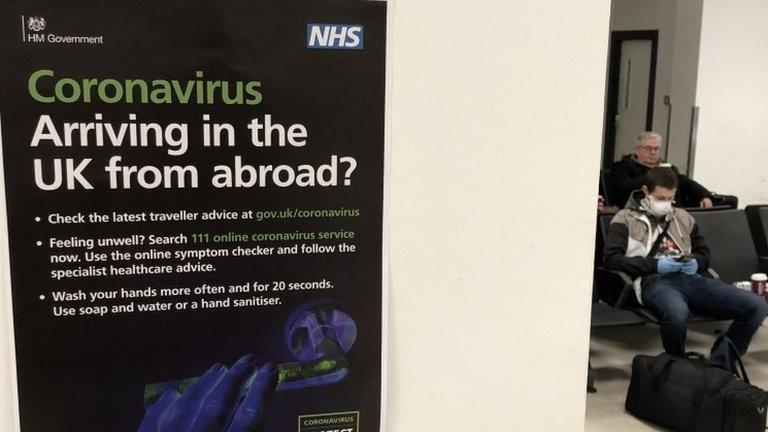
- Published15 March 2020
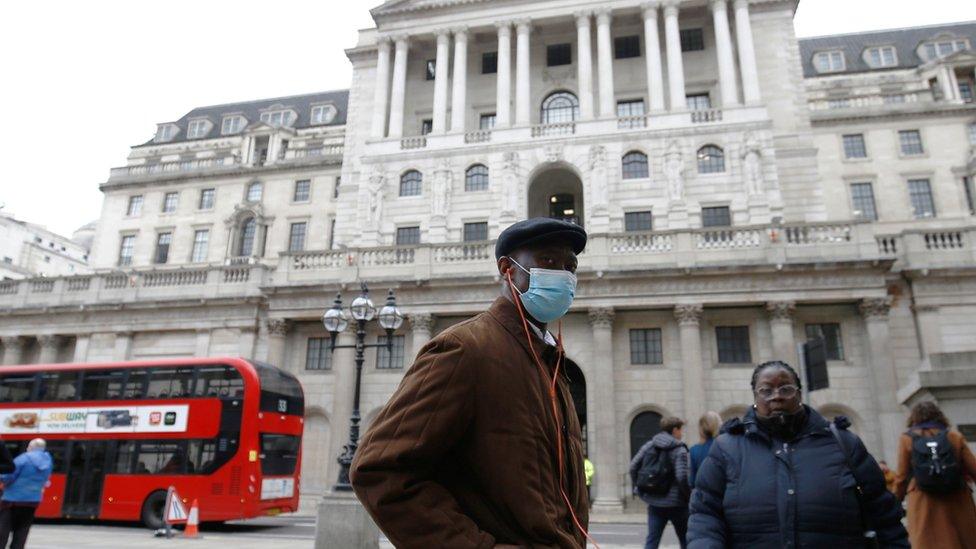
- Published14 March 2020
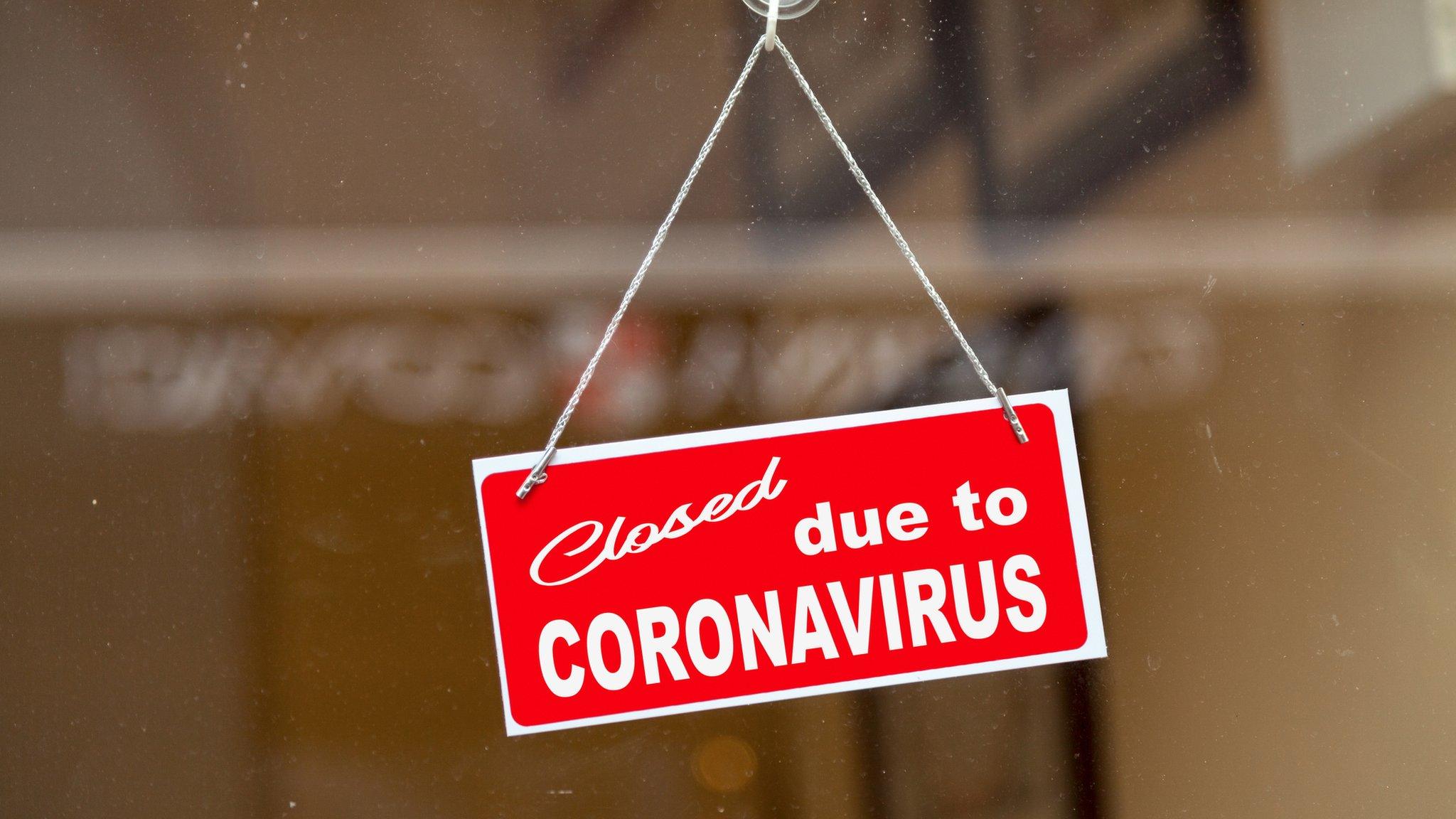
- Published14 March 2020
